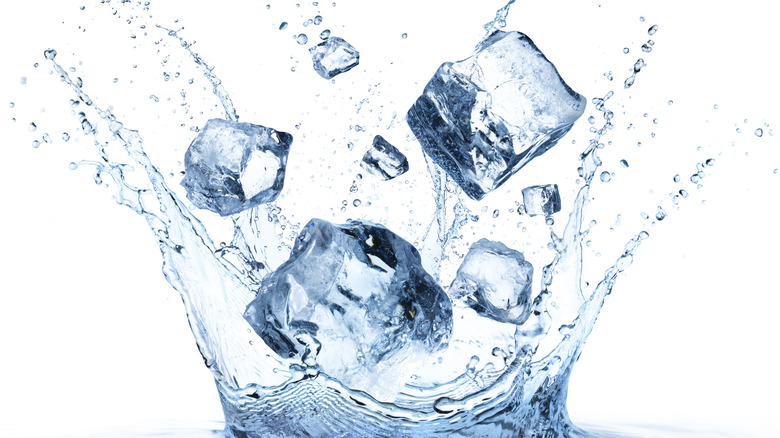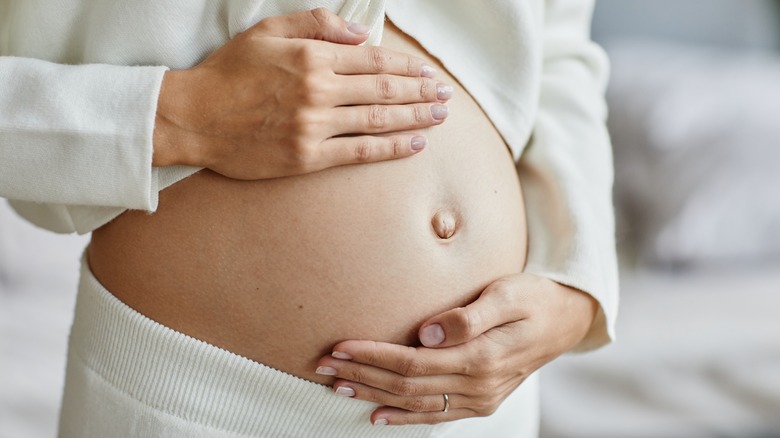Why Do Some People Crave Ice When Pregnant?
Pregnancy cravings are rooted in both science and psychology. Biologically, pregnancy brings about a flurry of rapidly changing hormones, which can first present as nausea and vomiting. That can quickly change into intense food cravings by the second trimester (via What To Expect).
At the same time, most of us have grown accustomed to the idea that we'll get certain cravings when pregnant. Since many people stop restricting food when pregnant, typical off-limit foods are often happily indulged in (via BBC).
Most cravings are strong urges for foods that have a lot of flavor, like salty pickles, sugary ice cream, rich chocolate, and tangy citrus fruit. Other common pregnancy cravings include cheese, yogurt, and milk.
As long as it's prepared well, free of bacteria and pathogens, and thoroughly cooked, no one food is harmful to eat during pregnancy. You can pretty much indulge in your cravings if you follow a well-balanced diet that includes necessary vitamins and minerals, including prenatal vitamins.
But what does it mean if you crave ice when pregnant?
Craving ice can signal a problem
Certain cravings aren't healthy and can signal a problem. Believe it or not, one such craving is ice, which seems innocent enough.
When you crave ice, it can mean that you have pica (via Healthline). This is a disorder where you have an intense urge to eat things that aren't food, including ice, paper, dirt, hair, or paint chips. There are different types of pica, and, when you crave ice, it's known as pagophagia.
It's a signal that something in your body needs to be addressed, usually mental issues or malnutrition. One of the more common causes of pica is being anemic due to insufficient levels of iron.
Ice cravings need to be reported to your doctor
Wanting some ice on a hot day isn't necessarily pica, but feeling compelled to eat ice cubes all day long might be. Whenever you crave any items that aren't food, it's important to share that with your doctor. While there is no definitive test for pica, a skilled obstetrician will be able to recognize the signs (via BabyCenter).
Treating pica begins with assessing your nutritional status, so a doctor will test your blood for vitamin and mineral levels. If anemia is detected, your doctor will add iron to your diet.
Sometimes, pica can result from mental and emotional problems, and eating non-food items is a way to relieve stress (via Mayo Clinic). In those cases, psychotherapy and coaching can help alleviate stress in a healthy way.


